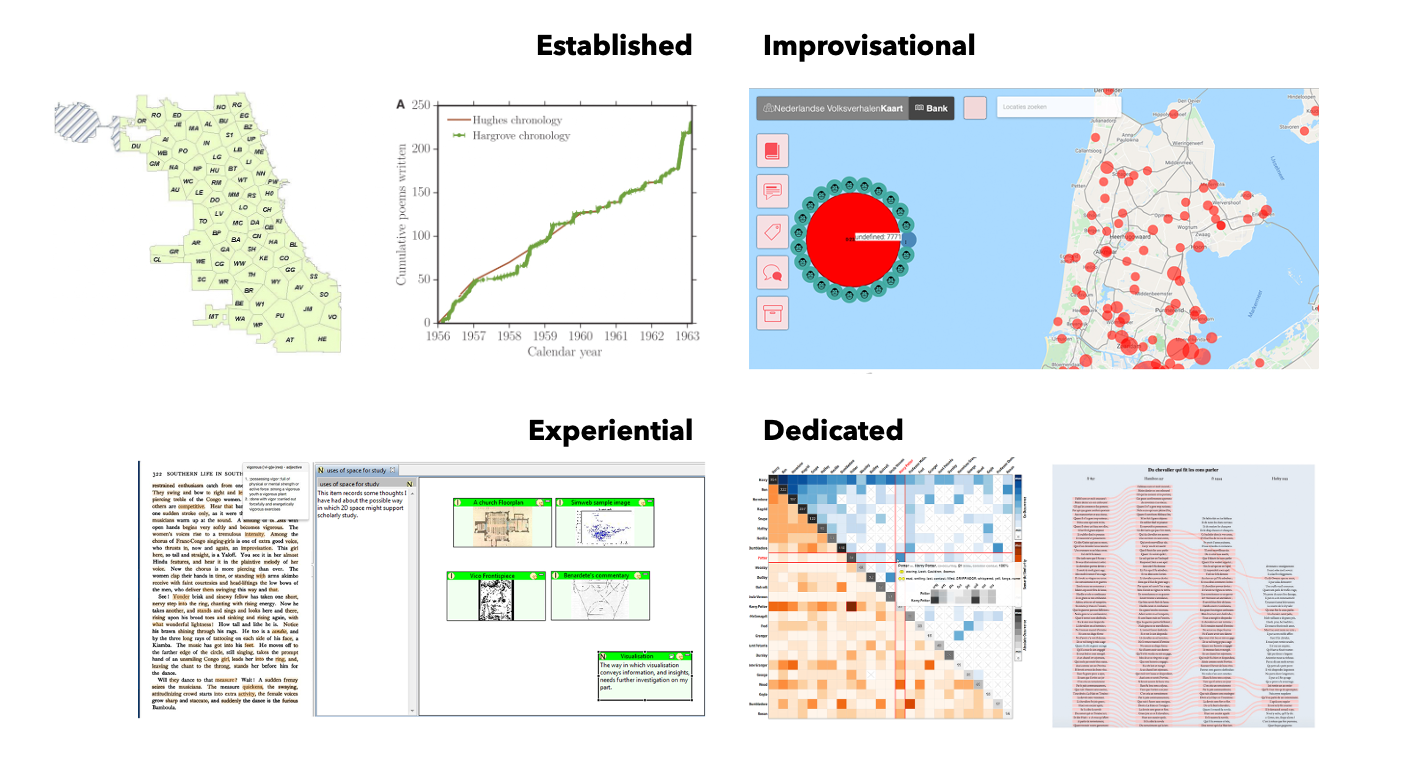Communicating Uncertainty in Digital Humanities Visualization Research
Georgia Panagiotidou, Houda Lamqaddam, Jeroen Poblome, Koenraad Brosens, Katrien Verbert, Andrew Vande Moere
View presentation:2022-10-19T21:21:00ZGMT-0600Change your timezone on the schedule page
2022-10-19T21:21:00Z

Prerecorded Talk
The live footage of the talk, including the Q&A, can be viewed on the session page, Uncertainty.
Fast forward
Abstract
Due to their historical nature, humanistic data encompass multiple sources of uncertainty. While humanists are accustomed to handling such uncertainty with their established methods, they are cautious of visualizations that appear overly objective and fail to communicate this uncertainty. To design more trustworthy visualizations for humanistic research, therefore, a deeper understanding of its relation to uncertainty is needed. We systematically reviewed 126 publications from digital humanities literature that use visualization as part of their research process, and examined how uncertainty was handled and represented in their visualizations. Crossing these dimensions with the visualization type and use, we identified that uncertainty originated from multiple steps in the research process from the source artifacts to their datafication. We also noted how besides known uncertainty coping strategies, such as excluding data and evaluating its effects, humanists also embraced uncertainty as a separate dimension important to retain. By mapping how the visualizations encoded uncertainty, we identified four approaches that varied in terms of explicitness and customization. This work thus contributes with two empirical taxonomies of uncertainty and it’s corresponding coping strategies, as well as with the foundation of a research agenda for uncertainty visualization in the digital humanities. Our findings further the synergy among humanists and visualization researchers, and ultimately contribute to the development of more trustworthy, uncertainty-aware visualizations.